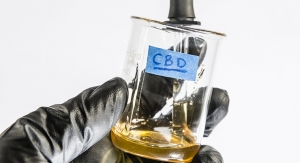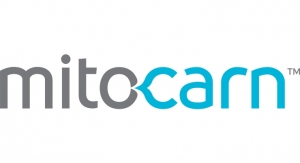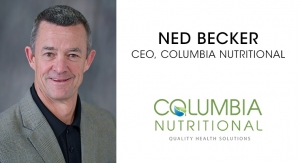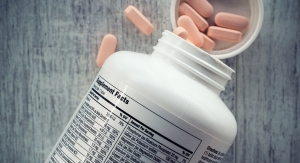10.29.19
The Natural Products Association (NPA) marked the 25th anniversary of the Dietary Supplement Health and Education Act (DSHEA) by highlighting the law’s impact on consumer safety, product innovation, and access to nutritional supplements, as well as ways to strengthen DSHEA and actions the Food and Drug Administration (FDA) could take to keep consumers safe, including the regulation of CBD.
DSHEA was passed unanimously by Congress in 1994 and signed into law by President Bill Clinton. In the 25 years since DSHEA was implemented, the industry has gone from having 4,000 products on the market with $4 billion per year in sales to 80,000 products on the market with $50 billion in sales per year. When DSHEA was first implemented only 42% of Americans took a dietary supplement compared to approximately three out of four Americans who now use dietary supplements.
“The passage and implementation of DSHEA helped foster product innovation, scientific research and a robust dialogue in academia and industry that has demonstrated bona fide value in improving access to healthy foods and supplements and ultimately helping to reduce spending for remedial medical practices dealing with sick-care, in favor of wellness through prevention and education,” said Mark LeDoux, NPA board chairman and Natural Alternatives International, Inc. CEO. “In essence, the supplement health and education act actually breathed renewed vigor into a segment of the industry that had been under unjustified assault by the status quo anti-innovation bias of overbearing regulators.”
“DSHEA has worked well; however, without improvements, we face a growing dichotomy between responsible companies and industry outliers,” said John Venardos, vice president, BodyBuilding.com and NPA board vice chairman.
According to Joe Weiss, president of Nutrition 21 and NPA board member, "DSHEA legitimized a category of products intended to help consumers self-manage their health and well-being and also allow for truthful, non-misleading information to be made available to the public. It also opened the door for responsible companies to make substantial investments in innovation, secure in the knowledge that FDA couldn’t overreach and regulate dietary supplements as drugs. This has led to tremendous economic growth for the industry and freedom for consumers over the past 25 years."
Daniel Fabricant, PhD, president and CEO of NPA, added: “DSHEA struck a careful and deliberate balance between consumers’ right to access safe, well-manufactured, and appropriately labeled dietary supplements with the FDA’s authority to protect the public from unsafe and unlawful products. This balance allowed us to grow from humble beginnings into an $50 billion industry while providing consumers with the confidence to know the products they use every day are safe and well-regulated. The current system is working but that doesn’t mean it is perfect. We look forward to continuing to find ways to work with the FDA to make our system even stronger, especially on big issues like CBD and new dietary ingredient filings.”
DSHEA was passed unanimously by Congress in 1994 and signed into law by President Bill Clinton. In the 25 years since DSHEA was implemented, the industry has gone from having 4,000 products on the market with $4 billion per year in sales to 80,000 products on the market with $50 billion in sales per year. When DSHEA was first implemented only 42% of Americans took a dietary supplement compared to approximately three out of four Americans who now use dietary supplements.
“The passage and implementation of DSHEA helped foster product innovation, scientific research and a robust dialogue in academia and industry that has demonstrated bona fide value in improving access to healthy foods and supplements and ultimately helping to reduce spending for remedial medical practices dealing with sick-care, in favor of wellness through prevention and education,” said Mark LeDoux, NPA board chairman and Natural Alternatives International, Inc. CEO. “In essence, the supplement health and education act actually breathed renewed vigor into a segment of the industry that had been under unjustified assault by the status quo anti-innovation bias of overbearing regulators.”
“DSHEA has worked well; however, without improvements, we face a growing dichotomy between responsible companies and industry outliers,” said John Venardos, vice president, BodyBuilding.com and NPA board vice chairman.
According to Joe Weiss, president of Nutrition 21 and NPA board member, "DSHEA legitimized a category of products intended to help consumers self-manage their health and well-being and also allow for truthful, non-misleading information to be made available to the public. It also opened the door for responsible companies to make substantial investments in innovation, secure in the knowledge that FDA couldn’t overreach and regulate dietary supplements as drugs. This has led to tremendous economic growth for the industry and freedom for consumers over the past 25 years."
Daniel Fabricant, PhD, president and CEO of NPA, added: “DSHEA struck a careful and deliberate balance between consumers’ right to access safe, well-manufactured, and appropriately labeled dietary supplements with the FDA’s authority to protect the public from unsafe and unlawful products. This balance allowed us to grow from humble beginnings into an $50 billion industry while providing consumers with the confidence to know the products they use every day are safe and well-regulated. The current system is working but that doesn’t mean it is perfect. We look forward to continuing to find ways to work with the FDA to make our system even stronger, especially on big issues like CBD and new dietary ingredient filings.”
























